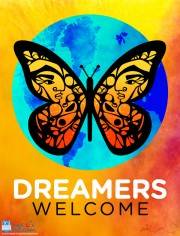SB 5194 — Undocumented Residents
Welcome to Shoreline Community College! Our mission includes serving the "educational, workforce and cultural needs of our diverse students and communities." We are dedicated to ensuring an environment of inclusiveness and equity for all students.
Residency and Senate Bill 5194 (formerly HB 1079)
Effective July 25, 2021, Senate Bill 5194 significantly changes Washington’s tuition equity law. Section nine of the bill amends RCW 28B.15.012(2)(e), making it easier for all Washingtonians, including and especially undocumented students, to meet residency requirements for tuition and state financial aid. Since 2003, this part of residency law has been known informally as “HB 1079” for the bill that created it. This law may be met by any student, regardless of citizenship or legal immigration status. It is one of the many ways that students can meet residency requirements. The other ways to meet residency requirements still exist.
Requirements for SB 5194
To be a resident student under this law, students must:
- Earn a high school diploma, GED, or diploma equivalent before their first term at the college determining residency,
- Maintain a primary residence in Washington for at least 12 consecutive months immediately before their first term at the college determining residency, and
- Sign an affidavit saying they meet the above requirements and that one of the following
is true:
They will file an application to become a permanent resident of the United States as soon as they are eligible to apply. And, that they are willing to engage in activities designed to prepare them for citizenship, including citizenship or civics review courses or - They are a U.S. citizen, U.S. national, or U.S. permanent resident.
Claiming residency under SB 5194
Complete and submit an application for admission and the Washington Higher Education Residency Affidavit . The affidavit is a confidential statement verifying that the student qualifies to pay resident tuition, that he/she will seek legal permanent residency of the United States as soon as eligible to apply and is willing to engage in activities designed to prepare for citizenship, including citizenship or civics review courses.
Financial Assistance
The Real Hope Act / Washington Dream Act
On February 26, 2014, Governor Jay Inslee signed into law the REAL Hope Act, also known as the Washington Dream Act. This law allows undocumented non-citizens, who are unable to complete a Free Application for Federal Student Aid (FAFSA) due to his/her immigration status, to apply for State Financial Aid (Washington College Grant) through the Washington Application for State Financial Aid (WASFA)application if they are attending public colleges in Washington.
For information about eligibility and the Washington College Grant application process please visit the WASFA website.
Scholarships
Undocumented students may qualify for any scholarship that does not require U.S. citizenship.
The Shoreline Community College Foundation offers a large number of scholarships and other financial assistance, including:
- High School Academic Scholarship
- Full-time Continuing Student Scholarship
- Part-time Continuing Student Scholarship
- VIVA Hispanic Foundation Scholarship
Other sources of scholarship information:
- Leadership 1000 Scholarship
- The Washboard - Search engine for scholarships
- Univision Scholarship
Frequently Asked Questions
The Deferred Action for Childhood Arrivals (DACA) program helps undocumented young people (who meet certain requirements) gain temporary immigration protections, including a work permit and protection from deportation. Students with DACA status may qualify for state residency. For more information please see the Residency and Citizenship information on the WASFA website.
For additional information you may consult outside resources including The National Immigration Law Center or the Northwest Immigration Rights Project.
In addition to the contacts listed above, students may reach out to the Shoreline Multicultural Center. To connect with campus support allies, look for offices that display the “Dreamers” butterfly logo.

There is no charge. The Washington Application for State Financial Aid, or WASFA, is a free application for non-citizens and citizens ineligbile for federal aid to apply for student financial aid in Washington State if they are residents. Upon successful completion of a WASFA, the college(s) you choose will use the information you provide to determine your eligibility to receive Washington State financial aid, including Washington College Grant, the College Bound Scholarship (if DACA status), or State Work Study.
Use the Eligibility Questionnaire on the WASFA website to determine if you should submit the WASFA or a FAFSA, Free Application for Federal Student Aid.
You can submit a WASFA application even if you do not have a social security number. Enter your social security number in the space provided if you have one. If you do not have a social security number, enter 000-00-0000.
All people living in Washington have the right to receive an education free from discrimination
based on race, color, national origin and immigration or citizenship status. The Washington
Student Achivement Council (WSAC) takes the privacy of personal information seriously
and is committed to taking all available legal measures to protect student data. While
recognizing WSAC's commitment, as well as laws that protect student privacy, it is
important for students and families to be aware of the limitation of such protections
so that they can make informed decisions about applying for various types of student
financial aid.
Students and families can read the WASFA privacy statements to understand where their data is going and how it used. Personal
information submitted through the WASFA is protected by the Family Educational Rights
and Privacy Act (FERPA) (1974); however, the U.S. Department of Homeland Security
does have the ability to obtain court orders, subpoena, or warrant for FERPA-protected
data.